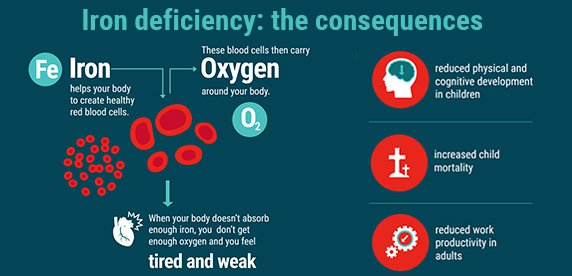
An athlete’s iron levels can greatly affect performance. When an athlete is iron deficient, energy and endurance suffers which lead to much slower times and more importantly other potential health issues.
There is a difference between iron deficiency and anemia. Iron deficiency is a lesser but more common form of anemia. What is often misunderstood is that you can be iron deficient, but still not test positive for anemia. Most pediatric doctors only test for anemia, which can be misleading. Female endurance athletes can be iron deficient, but not considered anemic. Those same athletes will likely see their athletic performances suffer as a result of being iron deficient.
Ferritin is not iron but is a protein in the body which contains iron. As ferritin is the main form in which iron is stored in the body the amount of ferritin which is found in the blood reflects the amount of total iron which is available to your body. … Ferritin is therefore the best indicator of iron deficiency.
When you visit your doctor, you can request a Ferritin test that will give you more accurate information regarding potential iron deficiency. This is considered important enough that most college programs have their female athletes’ Ferritin levels tested 3-4 times per year. If you get tested, you should ask for the actual test results (the number). Most experts agree that for female endurance athletes, a Ferritin level that is below 30-35 ng/mL, is considered LOW. For non-athletes, a Ferritin level as low as 6 ng/mL may be considered normal. Most pediatricians do not think in terms of athletes that are running 20-50 miles per week, so they tend to undervalue the importance of the Ferritin level results. If you get tested, you will get a more accurate result when rested and healthy (not immediately after a hard workout or race).
What can you do if your Ferritin test results are LOW? The best solution to low iron is to get more iron through your diet…eat more iron rich foods. There are also many supplements available in liquid and pill form that may help. Please talk with your doctor about what options are best for you.
It is truly unfortunate to see athletes that work as hard as they do, struggle due to a condition that is very treatable. We encourage you to be proactive in your own health issues.
The articles below are all great resources for further information on this topic.
Printable Resources and Articles:
Iron Deficiency: The Elephant in the Room
Low Ferritin and Iron Deficiency in Distance Runners: A Scientific Guide for Athletes & Coaches
Iron: The Missing Nutritional Link to Performance
Iron Level Upkeep for Runners
High School Girls: Are Your Ferritin Levels Up to Speed?
Ferritin and Fatigue
Ferritin, Hemoglobin, and Iron Deficiency in Distance Runners
Iron Deficiency and Iron Deficiency Anemia
Do I Need to Take an Iron Supplement?
Iron Deficiency in Runners
Running and Rusting
Low Iron May Have You Feeling Fatigued
Iron Depletion: What you and your doctor need to know
Non-Anemic Iron Deficiency



